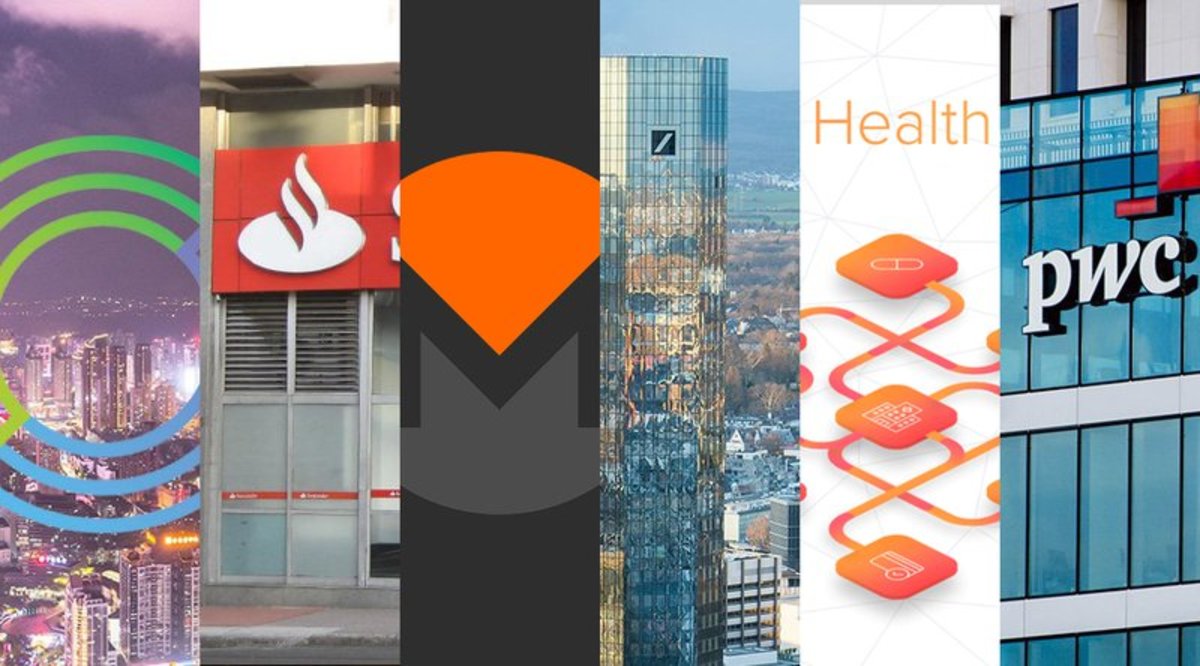
Bitcoin, digital currency and blockchain technology experienced another explosive year in 2016. While bitcoin breached the all-time high in USD market cap, several new digital currencies claimed a place in the spotlights as well, while the blockchain buzz arguably peaked it all.
Of course, Bitcoin Magazine kept up with all of it. Looking back on 2016, we compiled three top 6 lists, with our best-read topics in technology, business and news.
These were 2016’s six top developments in business, by popularity.
6: Circle Continues Its Move Away From Bitcoin
In a move that should not have come as a surprise, payments application Circle continued their pivot away from Bitcoin and toward more general, blockchain-based solutions in 2016. Circle CEO Jeremy Allaire even went so far as to claim that it’s highly unlikely anyone will be using Bitcoin in five or ten years.
Shortly thereafter, Circle announced that they would no longer allow users to buy and sell bitcoin on their platform. The company still uses Bitcoin in the background for settlement purposes, although they’ve now also integrated other blockchain solutions. Circle users can also still use the platform as an effective bitcoin bank where the payments company stores bitcoins for them.
Allaire has noted his frustration with what he perceives as the slow speed of development in Bitcoin on multiple occasions. Circle’s move away from Bitcoin is a story that could continue to develop further in 2017.
For now, it secured a top 6 spot in our list for 2016.
5: Santander Uses Blockchain Technology for International Payments
While the debate between Bitcoin and blockchain technology has raged for a couple of years now, 2016 saw the rollout of an actual consumer application from a big bank based on blockchain technology. In June, Santander U.K. announced the introduction of a pilot application that allows users to make international payments by way of blockchain technology.
In their announcement of the application, Santander’s Sigga Sigurdardottir claimed that blockchain technology will play a transformational role in the way the bank achieves their goals in the coming years.
The technology used by Santander in their payments application was developed by Ripple, a company in which the fintech venture capital wing of Santander Group has invested.
4: Alphabay Integrates Monero
Some may not think of AlphaBay when trying to come up with some of the most important businesses in the blockchain industry, but the darknet’s largest market was able to put its own stamp on the digital currency space in 2016. Privacy-conscious altcoins are often a topic of conversation when it comes to the darknet markets, and AlphaBay brought this topic to the forefront again with their integration of Monero.
AlphaBay was the second darknet market to implement Monero in 2016, although the other market, Oasis, appears to have run off with their users’ money. In recent comments to Bitcoin Magazine, an AlphaBay support representative claimed Monero currently accounts for 2 percent of the market’s business. The support representative also claimed that Zcash (another privacy-focused altcoin) integration could make sense in the future.
Although some blockchain enthusiasts are not fans of the darknet markets, the reality is that they still play a large enough role in the development of this technology to merit the number-four most widely read business story on Bitcoin Magazine this year, for a top 4 spot on our list.
3: Deutsche Bank Understands Blockchain Technology’s Disruptive Potential
The year 2016 is when banks became more serious than ever about blockchain technology, and a statement from Deutsche Bank illustrated this sentiment early in the year. In a statement from February, the bank was quoted as saying, “Banks must partner with fintech and digital currency businesses or risk disappearing altogether.”
Deutsche Bank is one of the members of the R3 consortium that has been researching blockchain technology on behalf of the member banks. 2016 also saw the release of Corda, which is a distributed ledger created by the R3 consortium.
Although Deutsche Bank mentioned digital currencies in their statement, the bank’s focus with financial technology has been on creating more convenient banking and payment solutions for their customers.
Deutsche Bank has been working on partnerships with various fintech startups over the course of 2016 in an effort to keep up with disruptive financial technologies.
2: Gem Launches Health Network With Philips Blockchain Lab
In April, Gem announced the launch of Gem Health, which is a network for developing healthcare applications powered by the Ethereum blockchain. Philips was the first major healthcare operator to join the Gem Health network.
According to the Gem website, the Gem Health network allows for the creation of global healthcare data standards that do not compromise on privacy and security. Identity schemes and smart contract applications are executed against a shared data infrastructure on the platform. Earlier this year, Gem CEO Micah Winkelspecht told Bitcoin Magazine, “A lot of companies were suffering from these same pain points — working with siloed data that we could bridge together.”
Gem also announced a $7.1 million Series A funding round in the early days of 2016.
With that, the startup places second in our most popular business developments of the year.
1: PwC Report Describes Blockchain's Disruptive Impact on Fintech
The top business story on Bitcoin Magazine in 2016 was a PwC report that found blockchain technology may disrupt traditional fintech startups. The report was based on a survey of 544 executives and top management personnel at various financial services companies around the world.
Although the report also discussed the fintech industry more generally, blockchain technology was specifically mentioned on multiple occasions. The report found that “blockchain technology may result in a radically different competitive future in the [financial services] industry.” The potential value of smart contracts was also discussed in the report.
The report identified 700 blockchain companies, 150 of which they deemed worthy of being tracked. Only 83 percent of the respondents in the survey considered themselves at least moderately familiar with blockchain technology, which led PwC to conclude that a lack of understanding of this technology may lead to market participants underestimating the impact of the blockchain on their activities.









